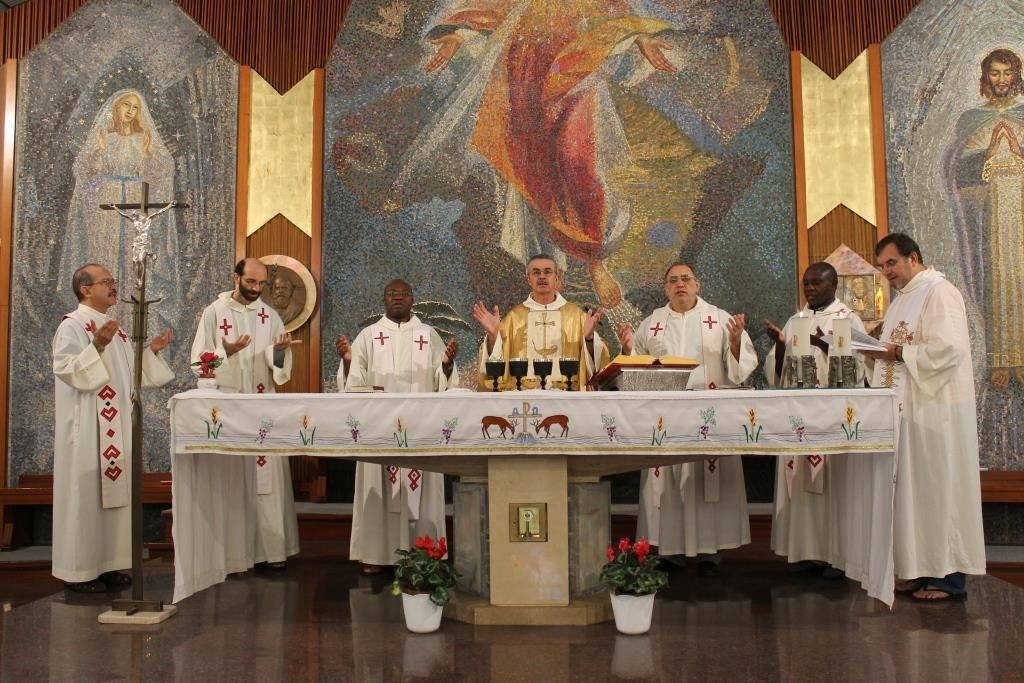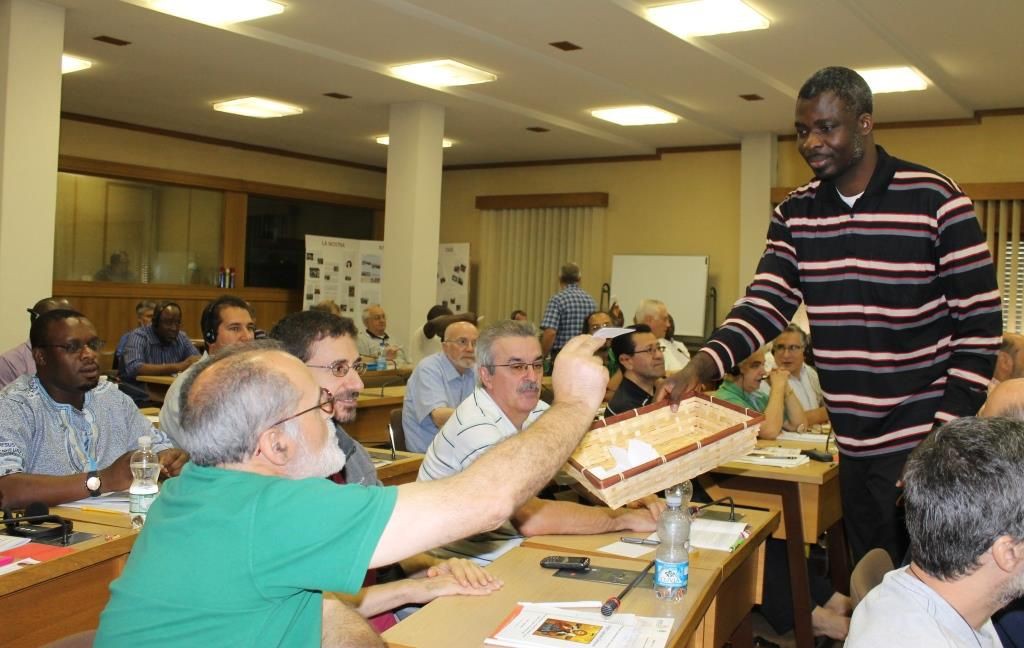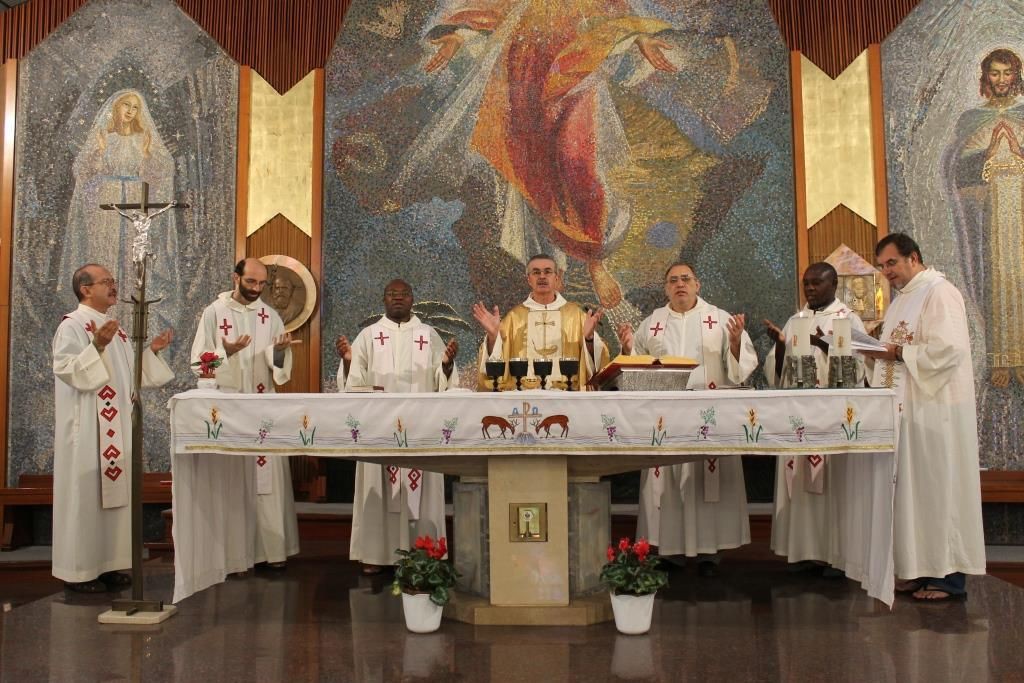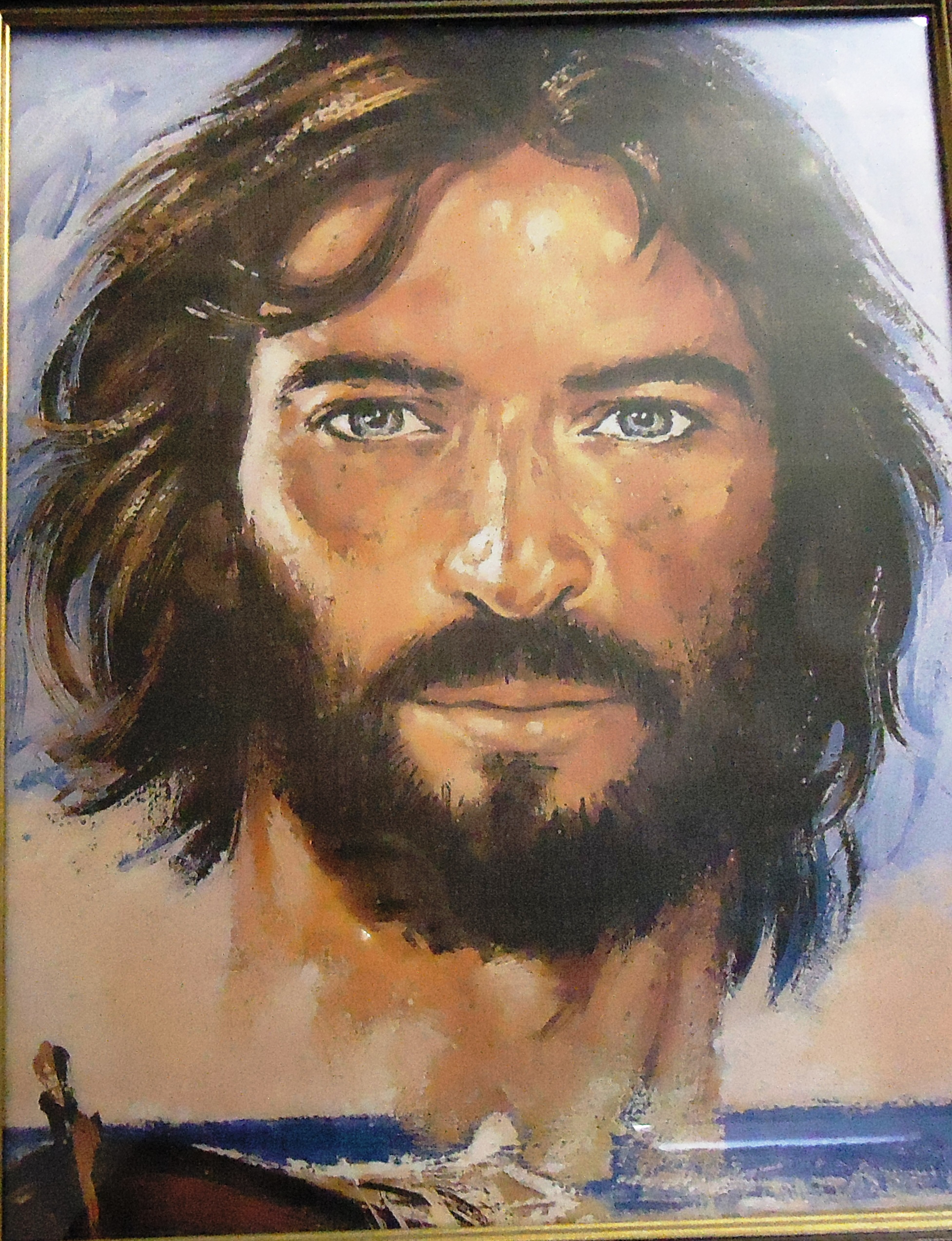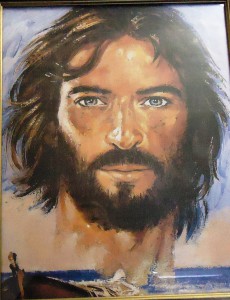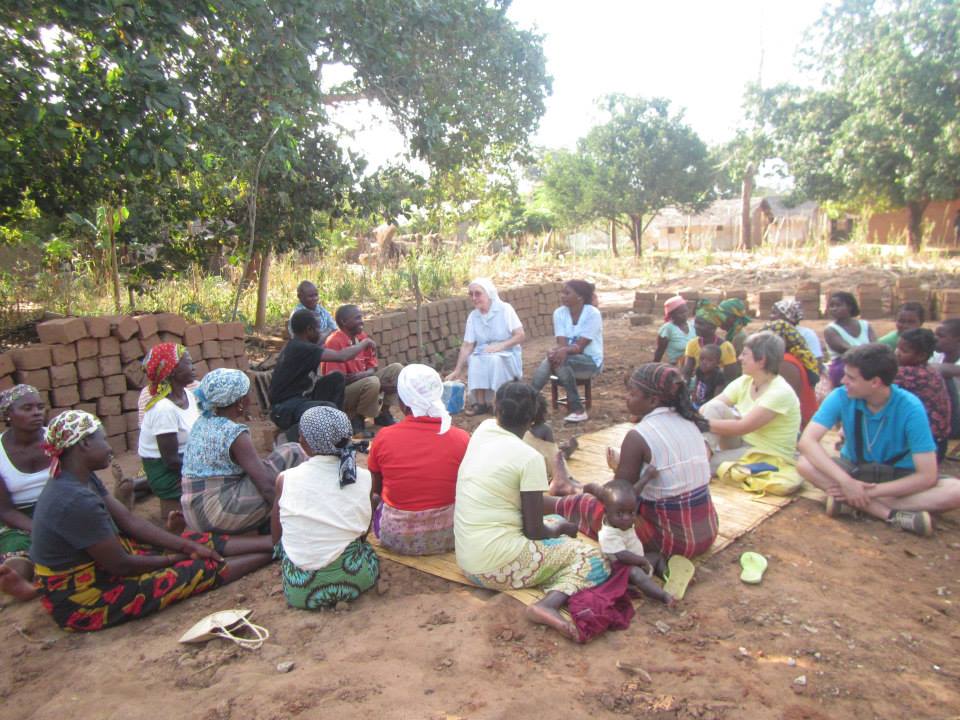
“The essential is invisible to the eyes”! I never found much meaning to this phrase as after Mozambique … When we dare to open our hearts to God’s call, we run the risk of discovering the true meaning of happiness. In fact, there were so many graces received, the experienced and shared love, that this experience has shaped my life, my heart filled in such a way that my thoughts, desires and dreams are all oriented towards Mozambique. Throughout the year we prepare these months of mission in Mozambique, we prepared ourselves with actions of charity, intense training, intimate encounters with God through prayer and so expectations were high and immense the anxiety. The truth, however, is that I never thought we will live so intensely this month with such dedication, with so much love … Weak was my faith, I admit! After all there were many people who prayed for us, there were many sincere hearts that have directed their prayers to God. The seven members of Faith and Mission group that reached the Carapira mission in Mozambique have only reasons to thank God for all we received.
In Carapira, from the beginning , we were welcome as family by the various members of the Comboni Family present there, we really felt welcomed, integrated. The first night we had a meeting to present ourselves together, allowing us to learn a bit of the work done in the mission, and to affirm our willingness to work hard this month. Yes, it was always a concern of the whole group to work hard, or in the words of Fernando Pessoa, to put in all that we are in everything we do no matter how small it is. And we did not stay unanswered. The next day we had a meeting where we received several proposals, either in the Industrial School of Carapira, in the ministry, at boarding school of the sisters, as well as with the community. I remember that after this meeting, the group began to divide tasks, specify the duties of each, with an intensity that quickly filled the quadrant of our activities. I was always glad to see everybody working. I am well aware that this was only possible by the confidence placed in us from the beginning, but I also know that throughout the month we did everything possible to meet expectations. To be honest, despite wanting to make the most of myself and work hard, I was always aware that a month would be very little to give ourselves unreservedly. The truth is that I was wrong. Of course, the difficulty of the language and adaptation to the place complicated things, but also the smiles, sympathy, trust placed in us and the fantastic reception we had, made everything so much easier. From the beginning, Brother Luis allowed us to participate wholeheartedly in school, either in the administrative work, whether in activities with students; Father Firmino allowing to accompany him on the visits to communities; the sisters allowing us to help with explanations to the girls at the boarding school and visiting the sick and elderly in the community and the Comboni Lay Missionaries that have always followed us closely and with whom we work very comfortable. I knew the work of the sisters, brothers and priests minimally by the various testimonies I had heard. But I confess I did not know the great work done by the Comboni Lay Missionaries. Their dedication to the Industrial School of Carapira, classroom, administration, nursing, in the dining room, as well as monitoring of extracurricular activities is impressive. But beyond that, the pastoral work in the communities, work in the parish, in the formation of the animators, the role of justice and peace for the communities… they left me baffled. Honestly, for the first time, I want to become a Comboni Lay Missionary. On a personal level, this month was very important to me. I found many of my limits when fatigue wanted to beat me, I was challenged to learn to live in community, how to be tolerant, to try to solve problems through dialogue, to examine me internally. When I think about it all, I’m glad I could grow. But apart from all these challenges I’ve been so happy … The Eucharist filled my heart with songs and dances that expressed so much, the smiles of children, the joy of the people of the communities, the Comboni family who I met in Carapira and I now call friends, girls in the boarding school that made me smile, young in the school, young people … Oh, my God, how I miss it! I want to mourn for joy …. I want to go back!!! … In Mozambique I felt the sun on my hand! The sun of joy, the sun that illuminate our life, the sun that warms us, that warms our hearts, the sun that allows us to exchange glances, the sun that makes us live intensely the day! In Mozambique I had the sun in my hand!




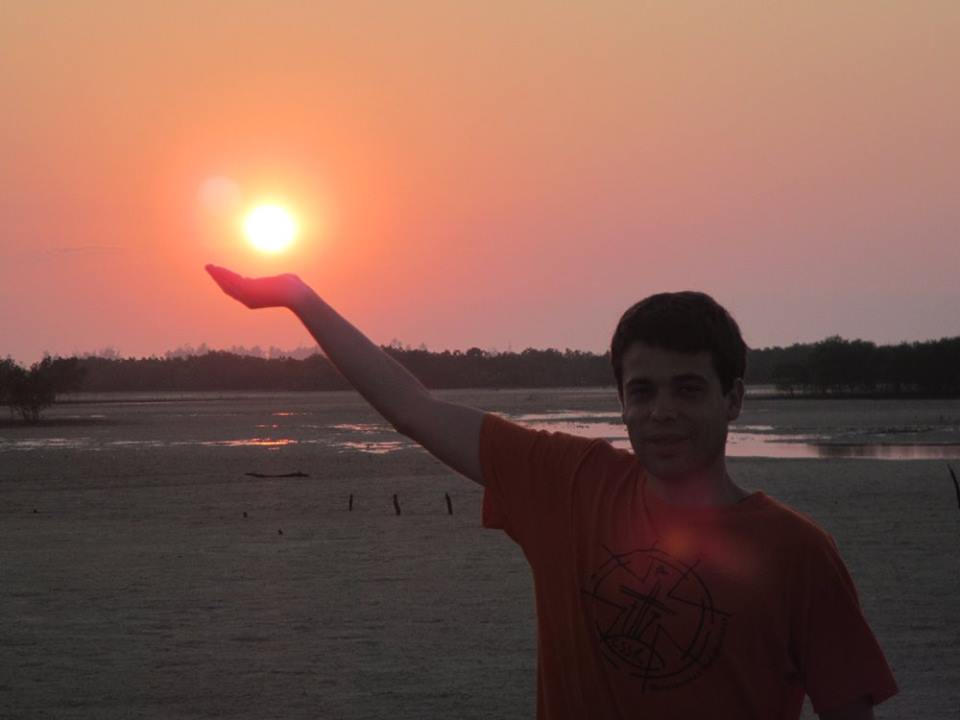
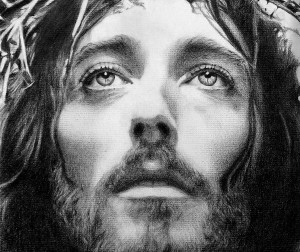
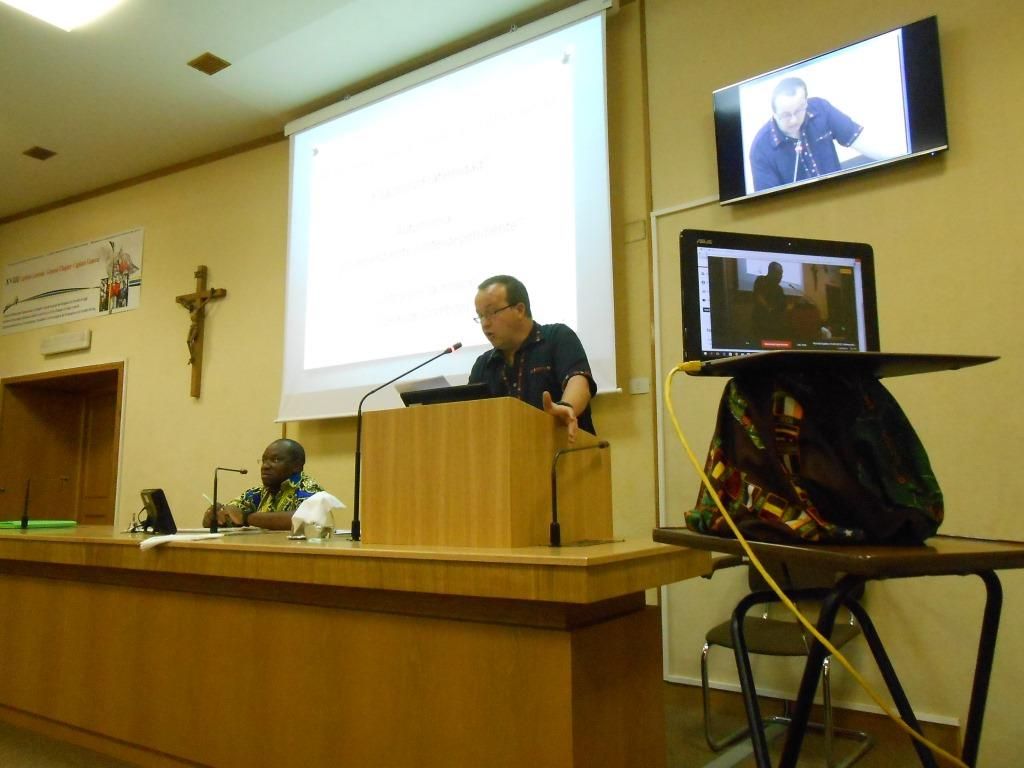
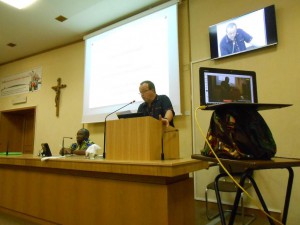
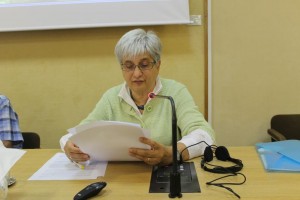 The secular Isabella d’Alessandro expressed their concern about the decline in staff, however, this is not a limit to the enthusiasm and desire to open up to the challenges posed by the mission. She recalled that the experience of weakness is an opportunity to collaborate with others, which invites to deepen our identity.
The secular Isabella d’Alessandro expressed their concern about the decline in staff, however, this is not a limit to the enthusiasm and desire to open up to the challenges posed by the mission. She recalled that the experience of weakness is an opportunity to collaborate with others, which invites to deepen our identity.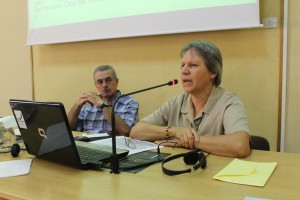
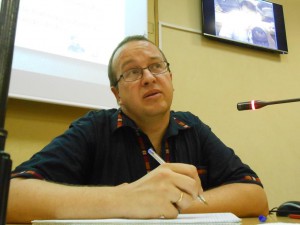 Finally, Alberto de la Portilla, coordinator of the CLM submitted its report to the Assembly. He explained the internal structure of the movement and the challenges made in the last intercontinental CLM assembly of Maia (2012). Expressing the desire to consolidate the already established groups and improve international coordination.
Finally, Alberto de la Portilla, coordinator of the CLM submitted its report to the Assembly. He explained the internal structure of the movement and the challenges made in the last intercontinental CLM assembly of Maia (2012). Expressing the desire to consolidate the already established groups and improve international coordination.